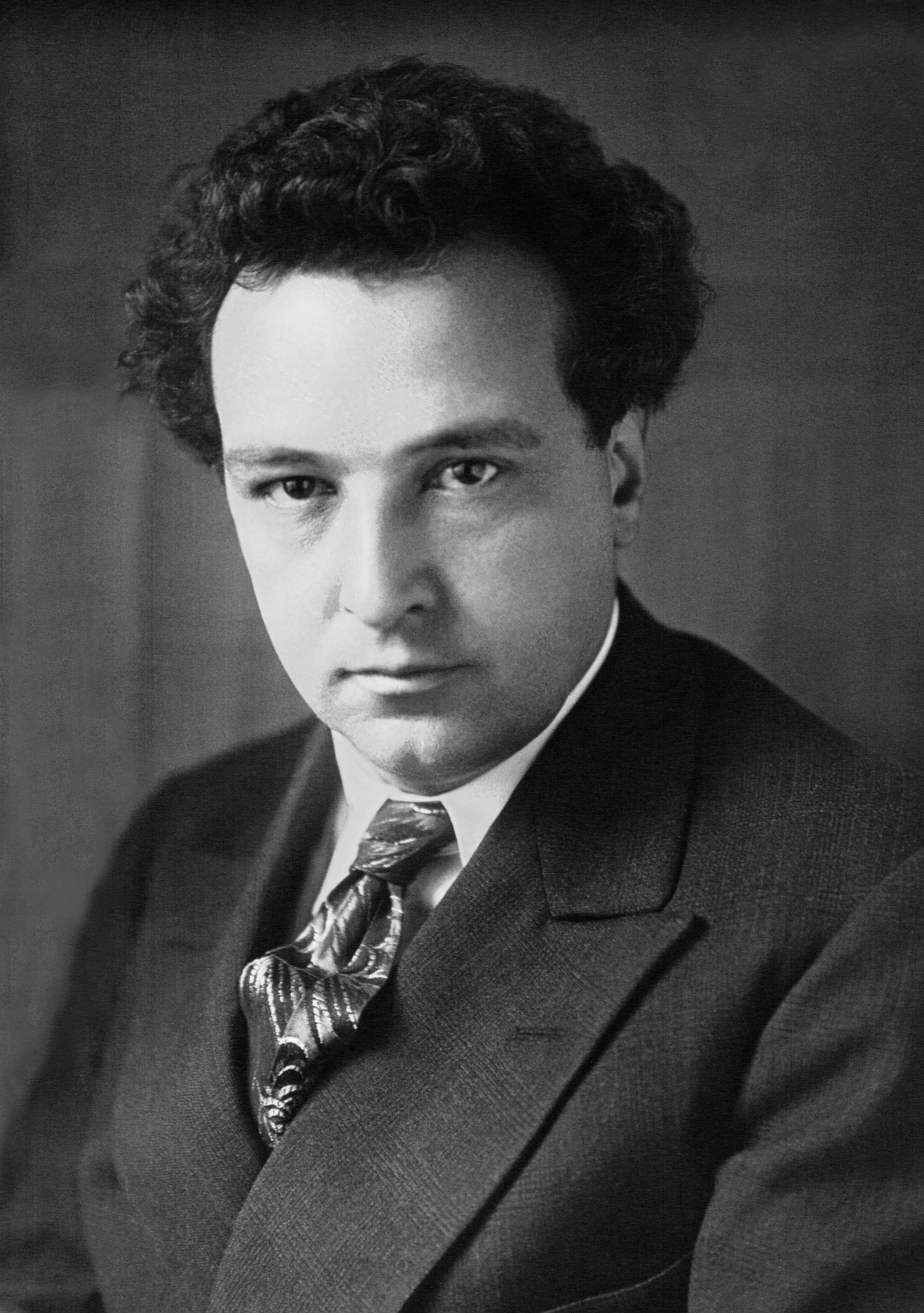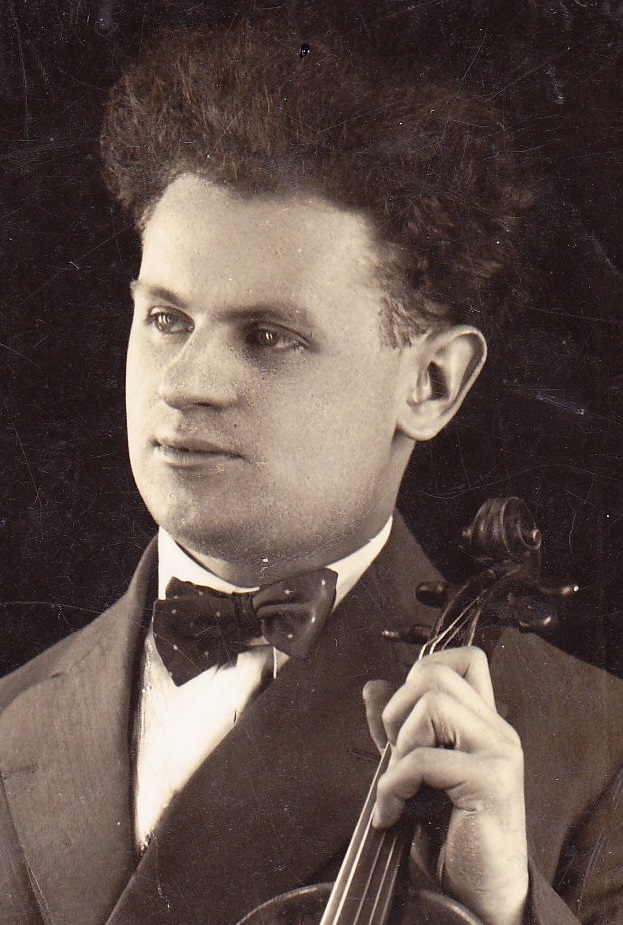|
Marcel Landowski
Marcel François Paul Landowski (18 February 1915 – 23 December 1999) was a French composer, biographer and arts administrator. Biography Born at Pont-l'Abbé, Finistère, Brittany, he was the son of French sculptor Paul Landowski and great-grandson of the composer Henri Vieuxtemps. He was father of a son and two daughters. The younger, Manon Landowski is singer-songwriter, performer, author and composer of musical shows. As an infant he showed early musical promise, and studied piano under Marguerite Long. He entered the Paris Conservatoire in 1935; in addition one of his teachers was Pierre Monteux. Administrative career In 1966, France's Cultural Affairs minister André Malraux appointed Landowski as the ministry's director of music, a controversial appointment made in the teeth of opposition from the then ascendant modernists, led by Pierre Boulez. One of his first acts was the establishment, in 1967, of the Orchestre de Paris, appointing Charles Munch as its fir ... [...More Info...] [...Related Items...] OR: [Wikipedia] [Google] [Baidu] |
Paris Conservatoire
The Conservatoire de Paris (), or the Paris Conservatory, is a college of music and dance founded in 1795. Officially known as the Conservatoire National Supérieur de Musique et de Danse de Paris (; CNSMDP), it is situated in the avenue Jean Jaurès in the 19th arrondissement of Paris, France. The Conservatoire offers instruction in music and dance, drawing on the traditions of the 'French School'. Formerly the conservatory also included drama, but in 1946 that division was moved into a separate school, the Conservatoire National Supérieur d'Art Dramatique (CNSAD), for acting, theatre and drama. Today the conservatories operate under the auspices of the Ministry of Culture and Communication and are associate members of PSL University. The CNSMDP is also associated with the Conservatoire National Supérieur de Musique et de Danse de Lyon (CNSMDL). History École Royale de Chant On 3 December 1783 Papillon de la Ferté, ''intendant'' of the Menus-Plaisirs du Roi, pr ... [...More Info...] [...Related Items...] OR: [Wikipedia] [Google] [Baidu] |
Orchestre De Paris
The Orchestre de Paris () is a French orchestra based in Paris. The orchestra currently performs most of its concerts at the Philharmonie de Paris. History In 1967, following the dissolution of the Orchestre de la Société des Concerts du Conservatoire, the French Minister of Culture, André Malraux, and his director of music, Marcel Landowski, engaged conductor Charles Munch to create a new orchestra in Paris. Soon after its creation, Munch died in 1968, and Herbert von Karajan was hired as an interim music advisor from 1969 to 1971. Successive music directors include Sir Georg Solti, Daniel Barenboim, and Semyon Bychkov. Christoph von Dohnányi served as artistic advisor from 1998 to 2000. During his tenure, Barenboim saw a need for a permanent chorus for the orchestra, and engaged the English chorus master Arthur Oldham to create the ''Chœur de l'Orchestre de Paris'' in 1976. Oldham remained with the Chorus till his retirement in 2002. From 2002 to 2011, Didi ... [...More Info...] [...Related Items...] OR: [Wikipedia] [Google] [Baidu] |
Concerto
A concerto (; plural ''concertos'', or ''concerti'' from the Italian plural) is, from the late Baroque era, mostly understood as an instrumental composition, written for one or more soloists accompanied by an orchestra or other ensemble. The typical three- movement structure, a slow movement (e.g., lento or adagio) preceded and followed by fast movements (e.g., presto or allegro), became a standard from the early 18th century. The concerto originated as a genre of vocal music in the late 16th century: the instrumental variant appeared around a century later, when Italians such as Giuseppe Torelli and Arcangelo Corelli started to publish their concertos. A few decades later, Venetian composers, such as Antonio Vivaldi, had written hundreds of violin concertos, while also producing solo concertos for other instruments such as a cello or a woodwind instrument, and concerti grossi for a group of soloists. The first keyboard concertos, such as George Frideric Handel ... [...More Info...] [...Related Items...] OR: [Wikipedia] [Google] [Baidu] |
Symphony
A symphony is an extended musical composition in Western classical music, most often for orchestra. Although the term has had many meanings from its origins in the ancient Greek era, by the late 18th century the word had taken on the meaning common today: a work usually consisting of multiple distinct sections or movement (music), movements, often four, with the first movement in sonata form. Symphonies are almost always scored for an orchestra consisting of a string section (violin, viola, cello, and double bass), Brass instrument, brass, Woodwind instrument, woodwind, and Percussion instrument, percussion Musical instrument, instruments which altogether number about 30 to 100 musicians. Symphonies are notated in a Full score, musical score, which contains all the instrument parts. Orchestral musicians play from parts which contain just the notated music for their own instrument. Some symphonies also contain vocal parts (e.g., Ludwig van Beethoven, Beethoven's Symphony No. 9 (B ... [...More Info...] [...Related Items...] OR: [Wikipedia] [Google] [Baidu] |
Arthur Honegger
Arthur Honegger (; 10 March 1892 – 27 November 1955) was a Swiss-French composer who was born in France and lived a large part of his life in Paris. Honegger was a member of Les Six. For Halbreich, '' Jeanne d'Arc au bûcher'' is "more even than '' Le Roi David'' or '' Pacific 231'', his most universally popular work". Biography Born Oscar-Arthur Honegger (the first name was never used) to Swiss parents in Le Havre, France, he initially studied harmony with Robert-Charles Martin (to whom he dedicated his first published work) and violin in Le Havre. He then moved to Switzerland, where he spent two years (September 1909 – June 1911) at the Zurich Conservatory being taught by Lothar Kempter and Friedrich Hegar. In 1911, he enrolled in the Paris Conservatoire from 1911 to 1918 (except for a brief period during the winter of 1914–1915, when he was mobilised in Switzerland), studying with Charles-Marie Widor, Lucien Capet, André Gédalge and Vincent d'Indy. Gédal ... [...More Info...] [...Related Items...] OR: [Wikipedia] [Google] [Baidu] |
Avant-garde
In the arts and literature, the term ''avant-garde'' ( meaning or ) identifies an experimental genre or work of art, and the artist who created it, which usually is aesthetically innovative, whilst initially being ideologically unacceptable to the artistic establishment of the time. The military metaphor of an ''advance guard'' identifies the artists and writers whose innovations in style, form, and subject-matter challenge the artistic and aesthetic validity of the established forms of art and the literary traditions of their time; thus, the artists who created the anti-novel and Surrealism were ahead of their times. As a stratum of the intelligentsia of a society, avant-garde artists promote progressive and radical politics and advocate for societal reform with and through works of art. In the essay "The Artist, the Scientist, and the Industrialist" (1825), Benjamin Olinde Rodrigues's political usage of ''vanguard'' identified the moral obligation of artists to "ser ... [...More Info...] [...Related Items...] OR: [Wikipedia] [Google] [Baidu] |
Manuel Rosenthal
Manuel Rosenthal (18 June 1904 – 5 June 2003) was a French composer and conductor who held leading positions with musical organizations in France and the United States. He was friends with many contemporary composers, and despite a considerable list of compositions is mostly remembered for having orchestrated the popular ballet score ''Gaîté Parisienne'' from piano scores of Offenbach operettas, and for his recordings as a conductor. Early life and career Rosenthal was born in Paris to Anna Devorsosky, of Russian-Jewish descent, and a French father he never met.Nichols R. Manuel Rosenthal: Obituary. ''The Guardian'', 9 June 2003. His surname was taken from his stepfather, Bernard Rosenthal. He started his musical studies on violin at age 6, which he played in cafés and cinemas after his stepfather's death in 1918 to support his mother and sisters.Anderson, Martin, "A Century in Music: Manuel Rosenthal in Conversation" (April 2000). ''Tempo'' (New Ser.) (212): pp. 31-37. I ... [...More Info...] [...Related Items...] OR: [Wikipedia] [Google] [Baidu] |
Emmanuel Bondeville
Emmanuel Bondeville was a French composer and music administrator, born 29 October 1898 in Rouen, and died 26 November 1987 in Paris. He was a member of the Académie des Beaux-Arts. Biography As a young man he was organist at the church of Saint-Nicaise in Rouen and Notre-Dame in Caen. Bondeville lost both his parents when he was 16, and took on various jobs – organist, bank clerk, translator - to get by.Landormy P. ''La Musique Française après Debussy.'' Gallimard, Paris, 1943. He made his beginnings in music around 1923 writing works for piano, symphonic poems, opéras-comiques and opéras. During this time he also travelled around Europe and worked as an assistant in a music shop. He eventually had lessons in harmony and counterpoint from Jean Déré. In 1935 he became musical director of the radio stations Radio Tour Eiffel, Radio Paris, Radiodiffusion française then artistic director of Radio Monte-Carlo. The French Radio was relocated to Marseille but the Vichy Franc ... [...More Info...] [...Related Items...] OR: [Wikipedia] [Google] [Baidu] |





